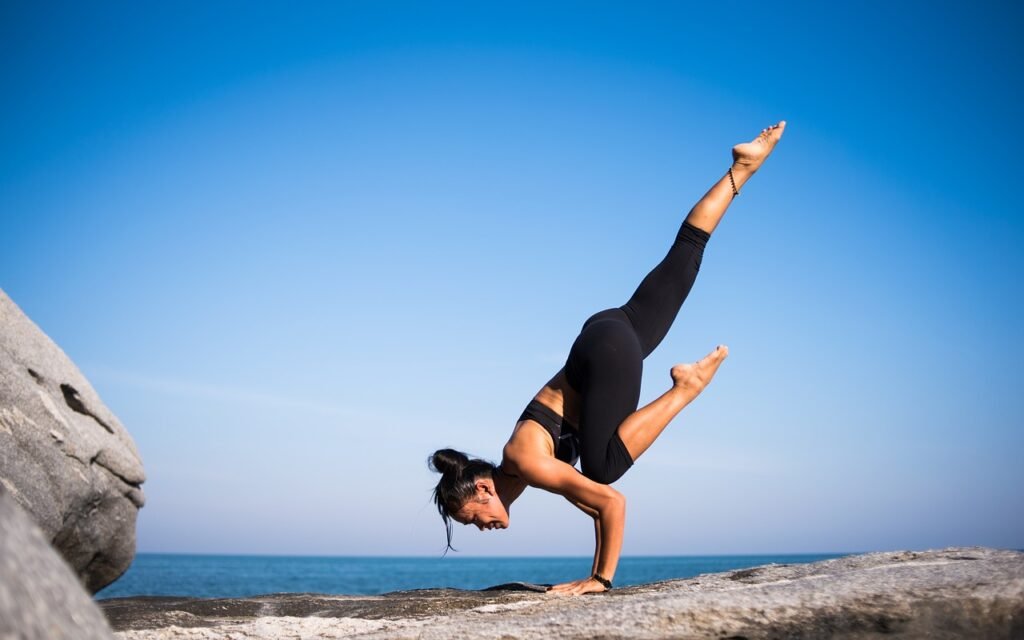In this article, we will explore the wonderful world of holistic approaches to health for seniors. From the calming practice of yoga to the transformative power of meditation, we will uncover the many benefits these practices can bring to seniors’ physical, mental, and emotional well-being. So, sit back, relax, and prepare to embark on a journey toward optimal health and wellness.
Benefits of Holistic Approaches to Health for Seniors
As a senior, taking care of your health is essential for maintaining a high quality of life. While traditional medical treatments and interventions are important, incorporating holistic approaches to health can provide a range of benefits for seniors. These holistic practices focus on the whole person – the mind, body, and spirit – and can support physical health, mental well-being, and emotional balance.
Physical Health Benefits
Holistic approaches to health, such as yoga, meditation, tai chi, acupuncture, massage therapy, and aromatherapy, offer numerous physical health benefits for seniors. These practices can help improve flexibility, strength, balance, and cardiovascular health. Engaging in regular physical activity through these holistic practices can also help manage weight, reduce the risk of chronic diseases, and enhance overall vitality.
Mental Health Benefits
In addition to the physical health benefits, holistic approaches to health also have a positive impact on mental well-being. Engaging in activities like yoga, meditation, tai chi, and music therapy can help reduce stress and anxiety, improve cognitive function, boost memory, and enhance overall mental clarity. These practices provide seniors with a means to relax, focus, and find inner peace, promoting mental resilience and emotional well-being.
Emotional Health Benefits
Seniors often face unique emotional challenges, such as loss of loved ones, retirement, and changes in social connections. Holistic approaches to health can play a pivotal role in supporting emotional well-being. Practices such as yoga, meditation, art therapy, music therapy, and aromatherapy can provide an outlet for self-expression, promote a sense of purpose, foster creativity, and enhance emotional resilience. These practices can help seniors manage stress, alleviate symptoms of depression, and enhance overall emotional balance.
Yoga for Seniors
Adapting Yoga for Senior Needs
Yoga is a versatile practice that can be adapted to meet the specific needs of seniors. Classes designed for seniors often focus on gentle movements, modified poses, and the use of props to support stability and safety. Instructors trained in senior yoga understand the limitations and challenges that may arise with age and tailor the practice accordingly. By adapting yoga for senior needs, the practice becomes more accessible, ensuring that seniors can experience the physical, mental, and emotional benefits of yoga.
Physical Benefits of Yoga for Seniors
Yoga offers a range of physical benefits for seniors. The gentle stretches and movements in yoga help improve flexibility, increase joint mobility, and enhance muscle strength and tone. Regular practice can also improve balance and stability, reducing the risk of falls and injuries. Additionally, yoga helps improve respiratory function, promoting lung capacity and overall cardiovascular health. As a low-impact practice, yoga is a safe and effective way for seniors to stay active and maintain physical well-being.
Mental and Emotional Benefits of Yoga for Seniors
Yoga is not just a physical exercise; it also provides mental and emotional benefits for seniors. The focus on breath control and mindfulness in yoga helps promote relaxation, reduce stress, and calm the mind. Regular practice can improve sleep quality, enhance mood, and alleviate symptoms of anxiety and depression. The mind-body connection cultivated through yoga allows seniors to cultivate a greater sense of self-awareness, self-acceptance, and emotional resilience.

Meditation for Seniors
Types of Meditation for Seniors
Meditation offers an array of techniques that can benefit seniors. Mindfulness meditation, mantra meditation, loving-kindness meditation, and guided visualization are some of the popular forms of meditation suitable for seniors. Each type of meditation has its own approach and focus, allowing seniors to choose a practice that aligns with their personal preferences and needs.
Benefits of Meditation for Seniors
Meditation provides numerous benefits for seniors, both mentally and physically. Regular meditation practice helps reduce stress, anxiety, and symptoms of depression, promoting overall mental well-being. It can improve focus, attention, and memory, enhancing cognitive function. Meditation also helps regulate emotions, allowing seniors to develop greater emotional resilience and a more positive outlook on life. Physically, meditation has been found to lower blood pressure, reduce oxidative stress, and improve immune function, contributing to overall physical health.
Techniques for Seniors to Start Meditating
Getting started with meditation can be simple and accessible for seniors. Finding a quiet and comfortable space, choosing a technique that resonates, and starting with short sessions are good starting points. Seniors can also consider joining meditation groups or using meditation apps that provide guided practices specifically designed for beginners or seniors. By starting small and consistently integrating meditation into their daily routine, seniors can experience the transformative benefits of this practice.
Tai Chi for Seniors
Introduction to Tai Chi
Tai Chi is a traditional Chinese martial art that incorporates gentle, flowing movements and deep breathing. It is often practiced for its health benefits, as it promotes balance, flexibility, and relaxation. Tai Chi can be particularly beneficial for seniors, as it is a low-impact exercise that can be easily adapted to match individual physical abilities and needs.
Physical Benefits of Tai Chi for Seniors
Tai Chi offers a host of physical benefits for seniors. The slow and controlled movements in Tai Chi help improve balance, coordination, and flexibility, reducing the risk of falls and injuries. It also strengthens muscles, enhances joint mobility, and improves cardiovascular health. Regular practice of Tai Chi can lead to increased energy levels, reduced pain and stiffness, and improved overall physical functioning.
Mental and Emotional Benefits of Tai Chi for Seniors
In addition to the physical benefits, Tai Chi also has positive effects on mental and emotional well-being. The meditative nature of Tai Chi promotes relaxation, reduces stress, and fosters mental clarity. It enhances mindfulness and self-awareness, improving mental resilience and emotional stability. The rhythmic movements and focused attention during Tai Chi practice create a sense of calm and inner peace, allowing seniors to better cope with the stresses of daily life.

Acupuncture for Seniors
Understanding Acupuncture
Acupuncture is an ancient Chinese medical practice that involves the insertion of thin needles into specific points on the body. It is based on the concept of Qi, the vital energy that flows through meridian channels in the body. By stimulating these points, acupuncture aims to restore the balance and flow of Qi, promoting health and well-being.
Health Benefits of Acupuncture for Seniors
Acupuncture can provide a range of health benefits for seniors. It is commonly used to alleviate pain, reduce inflammation, and improve circulation. For seniors dealing with chronic conditions such as arthritis or back pain, acupuncture can provide relief and enhance the quality of life. It can also help manage symptoms of age-related conditions such as insomnia, digestive issues, and hormonal imbalances. Acupuncture is a safe and effective complementary therapy that can be used alongside conventional medical treatments.
Safety and Precautions for Seniors
Prior to starting acupuncture, it is important for seniors to consult with a qualified acupuncturist. They should ensure that the acupuncturist is licensed, experienced, and follows proper hygiene and safety protocols. Seniors should also inform the acupuncturist about any existing health conditions, medications, or allergies. Acupuncture is generally safe, but precautions should be taken to avoid potential complications or adverse reactions.
Massage Therapy for Seniors
Benefits of Massage Therapy for Seniors
Massage therapy offers a range of benefits for seniors, both physically and emotionally. It can help alleviate muscle tension, reduce pain, and improve joint flexibility. Massage therapy promotes relaxation and stress reduction, enhancing overall well-being. It also stimulates blood circulation, aids in digestion, and boosts the immune system. Additionally, massage therapy provides a comforting and nurturing touch, which can be particularly beneficial for seniors who may experience feelings of loneliness or isolation.
Different Types of Massage for Seniors
There are various types of massage techniques that can be tailored to meet the specific needs and preferences of seniors. Swedish massage, deep tissue massage, and gentle relaxation massage are commonly used for seniors. Chair massage or seated massage is another popular option, providing convenience and comfort for seniors who may have limited mobility. The choice of massage technique can be based on the individual’s health condition, their level of comfort, and any specific concerns they may have.
Choosing a Massage Therapist
When selecting a massage therapist, seniors should consider a licensed and experienced professional who specializes in working with seniors. It is important to communicate any specific concerns or health conditions to the therapist to ensure that the massage is safe and beneficial. Additionally, seniors should feel comfortable and at ease with the therapist, creating a supportive and nurturing environment for the massage experience.

Aromatherapy for Seniors
Exploring Aromatherapy
Aromatherapy involves the use of essential oils derived from plants to promote physical, mental, and emotional well-being. The inhalation or topical application of these oils can stimulate the senses, affecting mood, relaxation, and overall health. Aromatherapy can be particularly beneficial for seniors as it offers a natural and non-invasive way to support wellness.
Benefits of Aromatherapy for Seniors
Aromatherapy provides several benefits for seniors. Different essential oils have unique properties that can promote relaxation, reduce anxiety, improve sleep quality, and enhance overall mood. Certain oils, such as lavender, chamomile, and bergamot, have calming and sedative effects, making them useful for seniors dealing with insomnia or stress. Other oils, such as peppermint or eucalyptus, can help alleviate symptoms of congestion or improve mental alertness. Aromatherapy allows seniors to engage with their sense of smell, fostering a sense of pleasure, comfort, and well-being.
Popular Essential Oils for Seniors
When using aromatherapy, it is important to consider the individual’s preferences and any health conditions they may have. Some popular essential oils for seniors include lavender, which promotes relaxation and sleep, and chamomile, known for its soothing properties. Peppermint and eucalyptus can provide pain relief and respiratory support. Citrus oils, such as lemon or orange, can uplift the mood and provide a sense of freshness. It is always advisable to consult with an aromatherapist or healthcare professional before using essential oils, especially if there are any concerns about allergies or interactions with medications.
Art and Music Therapy for Seniors
Art Therapy for Seniors
Art therapy involves the use of creative activities, such as painting, drawing, or sculpting, to promote self-expression and emotional healing. It can be particularly beneficial for seniors as it offers a means of communication and self-discovery, regardless of artistic skills or abilities. Art therapy provides a safe and supportive environment for seniors to explore their thoughts, emotions, and memories, leading to enhanced self-awareness and a sense of personal fulfillment.
Music Therapy for Seniors
Music therapy utilizes the power of music to support emotional, cognitive, and physical well-being. Whether through listening to music, singing, or playing instruments, music therapy can evoke memories, stimulate the senses, and create a sense of joy and connection. Music therapy can provide relief from symptoms of anxiety, depression, or loneliness. It can also promote cognitive function, improve communication skills, and enhance social interactions. Music therapy offers a creative and enjoyable way for seniors to engage with their emotions and find comfort and meaning in their experiences.
Benefits of Art and Music Therapy for Seniors
Both art and music therapy offer a range of benefits for seniors. They provide a means of self-expression and personal growth, promoting a sense of purpose and accomplishment. Engaging in creative activities can alleviate stress, reduce symptoms of depression, and improve overall emotional well-being. Art and music therapy also enhance cognitive function, memory, and attention span. Additionally, they provide opportunities for social interaction and a sense of connection with others, combating feelings of isolation and fostering a sense of community.
Herbal Remedies for Seniors
Introduction to Herbal Remedies
Herbal remedies involve the use of plant-based remedies to support health and well-being. These remedies can take the form of teas, tinctures, extracts, or supplements. While herbal remedies are considered natural, it is important to exercise caution and consult with a healthcare professional before incorporating them into a senior’s health regimen.
Common Herbal Remedies for Seniors
There are several herbal remedies that are commonly used by seniors to address specific health concerns. For digestion issues, ginger or chamomile can soothe the stomach and alleviate nausea. Turmeric and devil’s claw are often used for their anti-inflammatory properties, providing relief for seniors dealing with arthritis or joint pain. Ginkgo biloba is known for its cognitive-enhancing properties and can be beneficial for seniors managing cognitive decline. It is essential for seniors to consult with a healthcare professional before using any herbal remedies to ensure safety and avoid any potential interactions with medications.
Safety and Interactions of Herbal Remedies for Seniors
When considering herbal remedies, it is crucial for seniors to communicate openly with their healthcare provider. Some herbal remedies may interact with prescription medications or have contraindications for certain health conditions. Healthcare professionals can provide guidance and ensure that the chosen herbal remedies are safe and appropriate for seniors. It is also important to carefully follow dosage instructions and be aware of any potential side effects. Herbal remedies should be viewed as complementary to conventional medical treatments, rather than a replacement.
Holistic Lifestyle Tips for Seniors
Exercise and Physical Activity
Engaging in regular exercise and physical activity is essential for seniors to maintain physical health and prevent age-related conditions. It is important to choose activities that are appropriate for individual fitness levels and abilities. Incorporating a variety of exercises, such as walking, swimming, strength training, and yoga, can provide a well-rounded fitness regimen. It is advisable to consult with a healthcare professional or a fitness instructor familiar with senior fitness to create a personalized exercise plan that takes into consideration any existing health conditions or limitations.
Healthy Diet and Nutrition
Eating a healthy and balanced diet is crucial for seniors to support overall health and well-being. A diet rich in fruits, vegetables, whole grains, lean proteins, and healthy fats can provide essential nutrients and antioxidants. Seniors should aim to consume foods that support bone health, such as calcium-rich dairy products or leafy greens, as well as foods that promote brain health, such as omega-3 fatty acids found in fish or walnuts. It is important for seniors to stay hydrated and limit their intake of processed foods, sugar, and sodium.
Stress Reduction Techniques
Managing stress is essential for seniors to maintain emotional well-being and prevent the negative impact of chronic stress on physical health. Engaging in stress reduction techniques such as yoga, meditation, tai chi, or deep breathing exercises can help promote relaxation and inner peace. Additionally, engaging in activities that bring joy and pleasure, such as hobbies, spending time with loved ones, or enjoying nature, can effectively reduce stress levels. Seniors should also consider seeking support from counselors or support groups to address any emotional concerns or challenges they may be facing.
Incorporating holistic approaches to health into the daily routine can greatly benefit seniors. Whether through yoga, meditation, tai chi, acupuncture, massage therapy, aromatherapy, art and music therapy, or herbal remedies, seniors can enhance their physical health, improve their mental well-being, and find emotional balance. By adopting a holistic lifestyle that emphasizes exercise, healthy eating, and stress reduction techniques, seniors can enjoy a higher quality of life and age gracefully.
